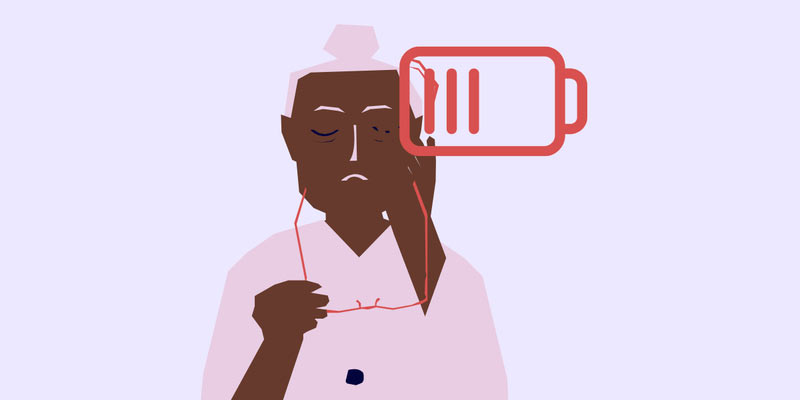Understanding the Four Potential Causes Behind the Escalating Mental Health Crisis
Nov 08, 2023 By Madison Evans
Mental health is a growing concern around the world, with reports suggesting that rates of anxiety and depression are steadily rising. Sadly, this staggering problem isn't confined to any one country or region; instead, it's causing devastation in communities across the globe. But what causes this mental health crisis? Through research and analysis, we can identify four potential root sources for why people are struggling more than ever before: psychological trauma due to adverse life experiences or circumstances, biological factors impacting hormones and brain chemistry, social inequities fuelling discrimination and injustice as well as lifestyle choices such as unhealthy diet or sleep deprivation.
The Physical Causes of Mental Health Issues:
While we often view mental health issues as solely a product of our thoughts and emotions, there are a myriad of physical factors that can contribute to their development. Genetics, hormone imbalances, and brain injuries are just a few examples of the many ways in which our bodies can directly impact our mental well-being.
Understanding these underlying causes is crucial in ensuring that individuals with mental health issues receive the most effective treatment possible. It’s time that we start recognizing the complex interplay between our physical and mental health, and work to address both sides of the equation in a holistic manner.
Genetics:
Researchers have identified numerous genes that are associated with mental health conditions. Studies have shown that certain individuals are more likely to inherit a predisposition for developing these issues, which can then be triggered by environmental or biological factors.
Hormone Imbalances:
Hormone imbalances can also contribute to mental health conditions. For instance, cortisol—a hormone produced in response to stress—can wreak havoc on our bodies when it’s present in excessively high levels over long periods of time. As such, chronic stress and an inability to manage one’s emotions can lead to serious psychological distress.
Brain Injuries:
Brain injuries can also have a significant impact on mental health. Traumatic brain injuries, for instance, can lead to serious psychological issues such as depression and anxiety. If you suspect that you may be experiencing the effects of a brain injury, it’s important to seek medical attention immediately in order to get properly diagnosed and treated.
The Social Factors Contributing to Mental Health Challenges:

Mental health challenges are complex and multifaceted, with many contributing factors. Among these, social factors such as;
- Employment
- Education
- Income
- Social support
In today's society, individuals facing economic and social hardships are at an increased risk of developing mental health issues. The lack of social support or sense of community can also leave individuals feeling isolated and vulnerable.
The Psychological Reasons for Mental Health Problems:
Mental health issues are often rooted in psychological causes, such as trauma or difficult life experiences. When people experience traumatic events, it can create changes in their psyche that lead to mental health problems later on. This can range from depression and anxiety to more severe disorders like post-traumatic stress disorder (PTSD). Other psychological reasons for mental health problems include negative thoughtpatterns, low self-esteem, and difficulty in managing emotions.
Stress is another psychological factor that can lead to mental health issues. When one experiences prolonged periods of stress, it can cause an imbalance in their brain chemistry and lead to anxiety and depression. This is why it's important for individuals to learn how to properly manage their stress levels by engaging in healthybehaviors such as exercise, relaxation techniques, and good nutrition.
Prevention of Future Mental Health Concerns:
There are several ways in which we can prevent the onset of mental health concerns, such as;
- Making time for self-care
- Seeking support when needed
- Practicing mindfulness techniques
By taking care of ourselves both physically and mentally, we can reduce our risk of developing mental health issues in the future. It is essential to prioritize our mental health and make it a top priority in our lives.
The Economic Factors Fueling Mental Health Struggles:

Mental health struggles are often attributed to a variety of factors, but one that is often overlooked is the impact of economic instability. In recent years, there has been a significant rise in mental health issues, and many experts believe that financial stressors are a significant contributor.
With increasing unemployment rates, stagnant wages, and a rising cost of living, individuals are experiencing more and more financial strain. This can lead to feelings of anxiety, depression, and hopelessness, which can have a profound impact on an individual's mental health.
When economic factors are recognized as contributors to mental health struggles, there is an opportunity for targeted intervention and support that can help individuals regain their emotional well-being.
Strategies for Coping with a Mental Health Crisis:
- Coping strategies include things like talking therapy, socializing, writing down feelings in a journal, and engaging in recreational activities such as art or music. Additionally, it can be helpful to practice mindfulness exercises and deep breathing techniques to help calm the mind and body.
- It’s also important to find a support system of people who can be trusted with sensitive information. Having someone to talk to can make a world of difference for an individual struggling with mental health issues, as it gives them an outlet to express their feelings without judgment.
- Lastly, if an individual is experiencing a major mental health crisis that is impairing their ability to function, it’s important for them to see a professional for treatment.
Conclusion:
Mental health is a complex and multi-faceted topic with physical, social, psychological, and economic causes and treatments. It is important to remember that mental health illnesses can strike anyone of any age or gender at any time. We must continue to promote awareness and support those who may be suffering in silence.








